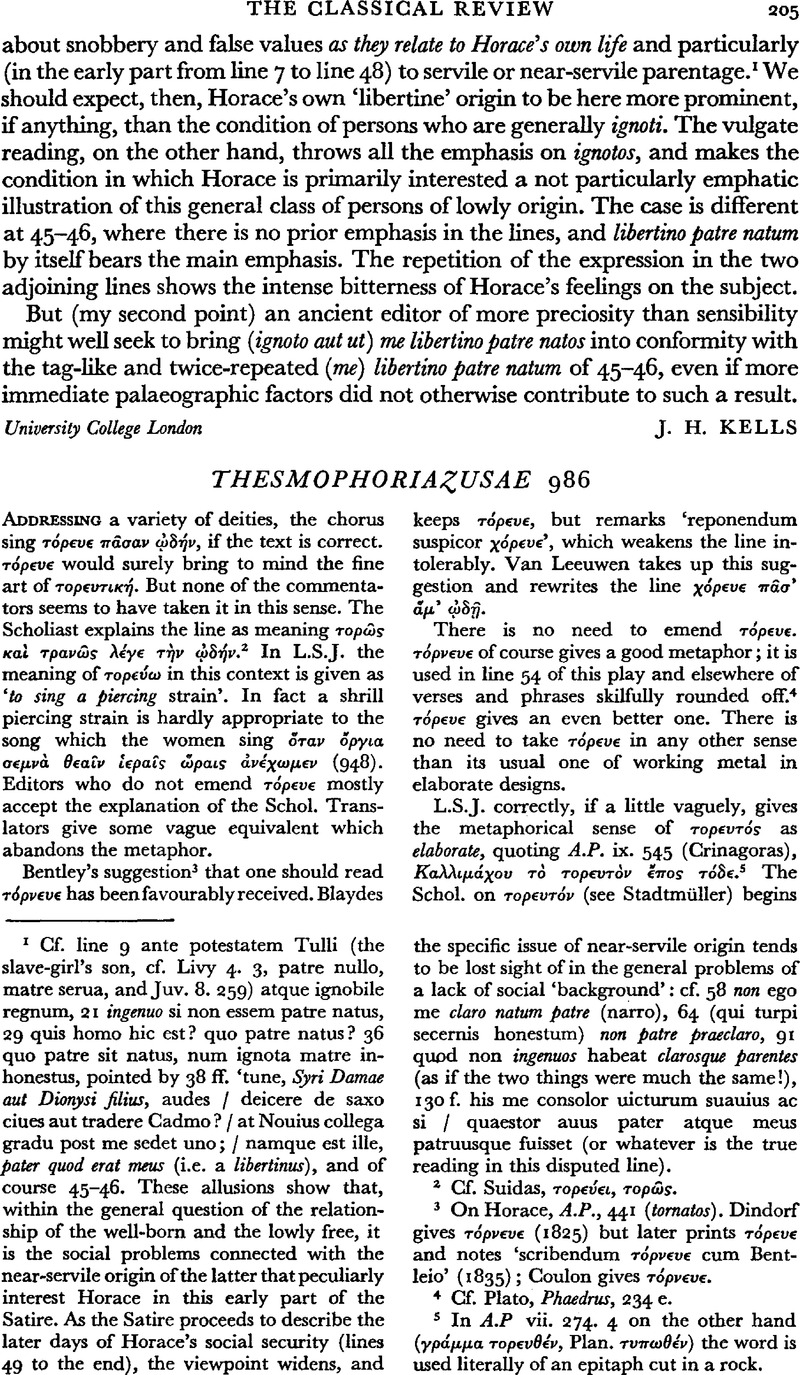No CrossRef data available.
Article contents
Thesmophoriazusae 986
Published online by Cambridge University Press: 13 February 2009
Abstract

- Type
- Review Articles
- Information
- Copyright
- Copyright © The Classical Association 1959
References
1 Cf. line 9 ante potestatem Tulli (the slave-girl's son, cf. Livy 4. 3, patre nullo, matre serua, and Juv. 8. 259) atque ignobile regnum, 21 ingenuo si non essem patre natus, 29 quis homo hie est? quo patre natus? 36 quo patre sit natus, num ignota matre inhonestus, pointed by 38 ff. ‘tune, Syri Damae out Dionysi filius, audes / deicere de saxo ciues aut tradere Cadmo ? / at Nouius collega gradu post me sedet uno; / namque est ille, pater quod erat meus (i.e. a libertinus), and course 45–46. These allusions show that, within the general question of the relationship of the well-born and the lowly free, it is die social problems connected with the near-servile origin of the latter that peculiarly interest Horace in this early part of the Satire. As the Satire proceeds to describe the later days of Horace's social security (lines 49 to the end), the viewpoint widens, and the specific issue of near-servile origin tends to be lost sight of in the general problems of a lack of social ‘background’: cf. 58 non ego me claro natum patre (narro), 64 (qui turpi secernis honestum) non patre praeclaro, 91 quod non ingenuos habeat clarosque parentes (as if the two things were much the same!), 130 f. his me consolor uicturum suauius ac si / quaestor auus pater atque meus patruusque fuisset (or whatever is the true reading in this disputed line).
2 Cf. Suidas, τορε⋯ει, τορ⋯ς.
3 On Horace, A.P., 441 (tornatos). Dindorf gives τ⋯ρνευε (1825) but later prints τ⋯ρνευε and notes ‘scribendum τ⋯ρνευε cum Bentleio’ (1835); Coulon gives τ⋯ρνευε.
4 Cf. Plato, Phaedrus, 234 e.
5 In A.P vii. 274. 4 on the other hand (γρ⋯μμα τορενθ⋯ν, Plan, τυπωθ⋯ν) the word is used literally of an epitaph cut in a rock.




